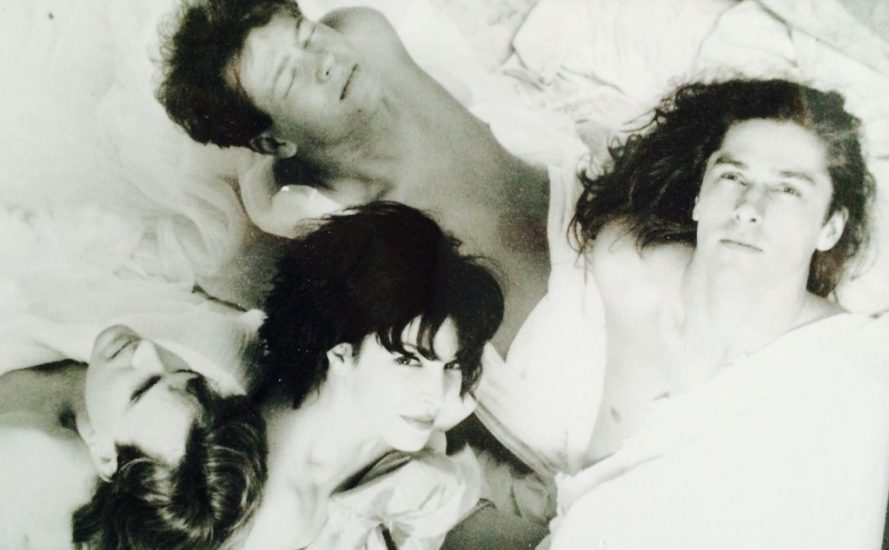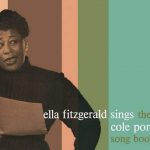Marching Two-Step Reunited! A Conversation With Ed Roland and Michele Rhea Caplinger
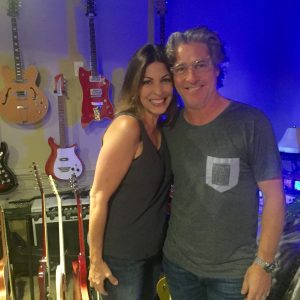 In 2015, she’s best known to Atlantans as the highly influential Senior Executive Director of the Atlanta chapter of the Grammys while he’s Collective Soul’s charismatic frontman currently on tour in support of the band’s ninth studio release, “See What You Started By Continuing.” But back in the late 1980s and early 1990s, Michele Rhea Caplinger and Ed Roland were bandmates in Roland’s pre-Collective Soul band, Marching Two-Step. Their 25-year friendship has endured and Caplinger was present when Roland and Collective Soul were inducted into the Georgia Music Hall of Fame in 2009 and when Roland was inducted as a songwriter in 2014.
In 2015, she’s best known to Atlantans as the highly influential Senior Executive Director of the Atlanta chapter of the Grammys while he’s Collective Soul’s charismatic frontman currently on tour in support of the band’s ninth studio release, “See What You Started By Continuing.” But back in the late 1980s and early 1990s, Michele Rhea Caplinger and Ed Roland were bandmates in Roland’s pre-Collective Soul band, Marching Two-Step. Their 25-year friendship has endured and Caplinger was present when Roland and Collective Soul were inducted into the Georgia Music Hall of Fame in 2009 and when Roland was inducted as a songwriter in 2014.
Eldredge ATL’s October Guest Editor and Caplinger agreed to sit down together in Ed’s living room for a conversation recounting their days playing together in a decidedly idyllic and fertile era for Atlanta bands when Swimming Pool Q’s, The Producers, Black Crowes, Indigo Girls, Georgia Satellites, Drivin N Cryin and finally, Collective Soul were all breaking out of Atlanta’s music scene.
Eldredge ATL: Let’s begin with where did you two meet?
Michele Caplinger: Club Rio downtown. Ed’s earlier band, Ed E used to play there. I was working at the club booking acts and doing publicity at the time. I was [Rio manager] Michael Krohngold’s assistant and Ed was actually one of the first live performers we had there.
Ed Roland: Michele made quite the impression on me. She would tell these stories about meeting Bono and The Edge [from U2] and how they wrote old Irish tunes on her stomach. I just remember thinking, “This girl is cool.”
Michele Caplinger: We had private VIP rooms upstairs at Club Rio and we had 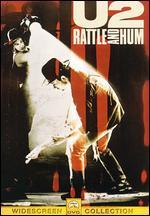 all these big acts playing the Omni to come to Club Rio. I figured they had to go party somewhere and we were close by. We got David Bowie in there and yes, U2. They were in town doing post-production on [a documentary companion to the band’s 1988 album] ’“Rattle and Hum.”
all these big acts playing the Omni to come to Club Rio. I figured they had to go party somewhere and we were close by. We got David Bowie in there and yes, U2. They were in town doing post-production on [a documentary companion to the band’s 1988 album] ’“Rattle and Hum.”
Eldredge ATL: What kind of marker did they use?
Michele Caplinger: Can I tell you, I was a little pissed off because they used a permanent marker right across my midriff (Ed starts laughing). We ended up partying until 5 in the morning and at the end, it was me, the barback Fletcher [Liegerot], the drummer in the Ellen James Society and we were drinking tequila. Bono was just telling us stories and said, “I’m going to teach you this old Irish limerick.” He wrote the first and second verses on Fletcher’s arms and I was the chorus. We took a picture of it!
Ed Roland: We just liked a lot of the same things musically and struck up a friendship.
Eldredge ATL: What was it about Ed’s music when you first heard it at Club Rio that appealed to you?
Michele Caplinger: It was filled with hooks, it was catchy and it was thoughtful. Ed’s hair was practically down to the floor. When he was at the mike and he leaned his head to one side singing, all you could see was his nose and his mouth.
Ed Roland: You can see this nose from space!
Michele Caplinger: He was kind of mysterious. You could tell he was still trying to figure out the whole stage thing and didn’t quite want to put himself out there yet. Eventually, Ed asked, “Hey, would you like to come into the studio to record some harmonies?” and I went to Real 2 Reel Studios in Stockbridge.
Ed Roland: It just grew from there. Everything was in development. I didn’t know what I was doing.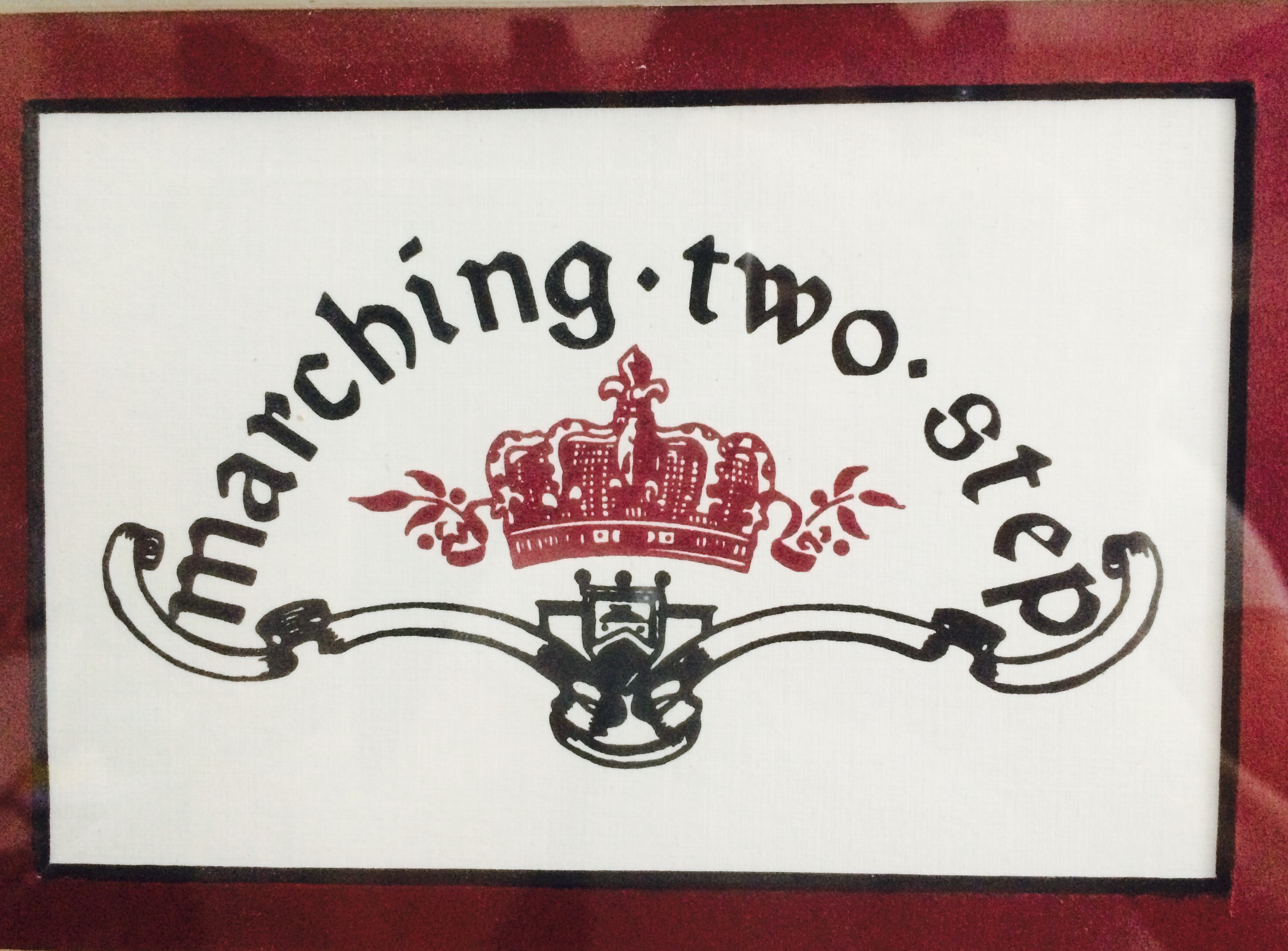
Michele Caplinger: Do you remember the first song you taught me? It was “Pile of Pearls.”
Ed Roland: And I taught it to you in [drummer] Shane Evans’ basement.
Eldredge ATL: How did you two end up in Marching Two-Step together?
Ed Roland: I remember going to see INXS and they had these girls in a go-go cage. I thought that was the coolest thing. I thought, “What hot girl do I know who can sing?” (laughing).
Michele Caplinger: (laughing) You’re very generous. Thank you. He never told me about any go-go cage. I would have gotten in one in a heartbeat, too! (both laughing).
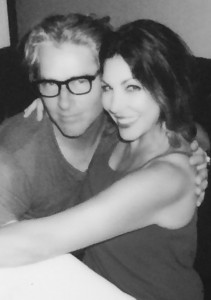 Eldredge ATL: Which clubs were booking Marching Two-Step back then?
Eldredge ATL: Which clubs were booking Marching Two-Step back then?
Ed Roland: The Cavern Club in Buckhead mostly. It was our home base.
Eldredge ATL: What was cool about the Cavern?
Ed Roland: They actually let us play there. (both laughing). We also played at Colorbox.
Michele Caplinger: We opened for the Psychedelic Furs at the Georgia Theatre in Athens. too. I still don’t remember how we got that gig!
Eldredge ATL: What was that evening like?
Ed Roland: The Furs were great and Michele looked hot. (both laugh).
Eldredge ATL: So, Shane Evans, Matching Two-Steps’ drummer and Collective Soul’s future drummer was a 17-year-old high schooler. One night, apparently, he was not keeping time sufficiently for you, Ed. Can you tell the rest of that story? (Michele laughing).
Ed Roland: We were on stage at The Cavern and Michele was dancing like she did…
Michele Caplinger: Like I did… (laughing). Ed was mad at Shane because he was dragging the tempo that night. Ed looked at me and said, “Flash him!” And so I turned around, yelled “Shane!” and (pantomimes opening her blouse). Shane was like “Woah!”
Ed Roland: Michele instantly fixed the tempo problem for the rest of the night!
Eldredge ATL: What was fun about the club scene in Atlanta in the late 1980s and early 1990s?
Ed Roland: Everybody knew everybody and everybody truly liked each other and supported each other. I never remember anybody being jealous of another band.
Michele Caplinger: You hung out together, you borrowed each other’s equipment, you came to each other’s shows, helped promote each other’s shows. It really was a community.
Ed Roland: We all loved hanging out with Face of Concern, the Nightporters…
Michele Caplinger: The Georgia Satellites, Drivin N Cryin, Baby and the Pacifiers were big back then…
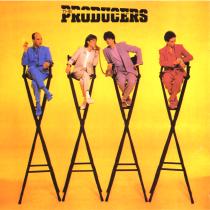 Ed Roland: One of the best shows I ever saw was The Swimming Pool Q’s and The Producers on the same bill at Moonshadow Saloon. I remember thinking, “That’s what I want to do. I want to play music!” The first person I remember recording at the [Real 2 Reel] studio was RuPaul. This was when RuPaul was making his indie movies at the apartment of the girl I was dating. We came back to her place one night and he was there and there was fake blood all over the walls! She didn’t even know who he was. She was like, “What’s going on?!” I said, “I dunno. It’s RuPaul.” (both laughing).
Ed Roland: One of the best shows I ever saw was The Swimming Pool Q’s and The Producers on the same bill at Moonshadow Saloon. I remember thinking, “That’s what I want to do. I want to play music!” The first person I remember recording at the [Real 2 Reel] studio was RuPaul. This was when RuPaul was making his indie movies at the apartment of the girl I was dating. We came back to her place one night and he was there and there was fake blood all over the walls! She didn’t even know who he was. She was like, “What’s going on?!” I said, “I dunno. It’s RuPaul.” (both laughing).
Michele Caplinger: Marching Two-Step played a show one night at The Point in Little Five Points and Tony Paris, the music critic from Creative Loafing came in. He ended up writing something like, “I love this band’s chemistry. You can tell that this band was having a great time.” That was the nicest thing you could possibly say about us.
Ed Roland: Especially coming from Tony who told it to you straight! (both laughing).
Eldredge ATL: When did you realize that Marching Two-Step had reached its peak?
Ed Roland: We were all getting older and nothing was really moving forward for us. I remember us all talking together about it. It was fourth down and time to punt. I didn’t know what else to do.
Michele Caplinger: I came up with this one concept that never made it to the stage. It was this dance concept called Go-Go Baroque. Rich, you can see the powdered wigs and the smeared eyeliner, can’t you? (both laugh).
Eldredge ATL: Ed, you almost quit music, right?
Ed Roland: Well, I was going to go play on a cruise ship as a guitar player.
Eldredge ATL: So you start recording solo demos of your own songs at Real 2 Reel Studios where you were working and you hand it out and a radio station in Orlando starts playing it…
Ed Roland: Correct, on the commercial side and Album 88 here in Atlanta was  the college station where it took off. Shane stayed on, my brother Dean joined and Will [Turpin] wasn’t even playing bass back then, he was playing congas. We played one show under the name Brothers and Brides. Afterward we decided that was the stupidest name ever! We didn’t know what direction we were going in. We ended up playing Album 88’s Christmas show with whoever could get there and we somehow put together 30 minutes of a show. By January of 1994, we had four labels all wanting to sign us because “Shine” was already charting. We were supposed to go out on the road for eight weeks…
the college station where it took off. Shane stayed on, my brother Dean joined and Will [Turpin] wasn’t even playing bass back then, he was playing congas. We played one show under the name Brothers and Brides. Afterward we decided that was the stupidest name ever! We didn’t know what direction we were going in. We ended up playing Album 88’s Christmas show with whoever could get there and we somehow put together 30 minutes of a show. By January of 1994, we had four labels all wanting to sign us because “Shine” was already charting. We were supposed to go out on the road for eight weeks…
Michele Caplinger: And you came back eight months later.
Ed Roland: We went from rehearsing in my parent’s basement to playing Woodstock and opening for Aerosmith. We didn’t know what was going on. There were no cellphones and we didn’t know where we were supposed to be next. My mom told me later that at the time my dad told her, “I hope God knows where our children because we don’t.”
Eldredge ATL: Michele, you began doing music PR full time.
Michele Caplinger: Right, I came on as an assistant in the publicity office at Atlantic Records, the label that signed Collective Soul. I was thrilled to be a part of it. Look, it was never a question of if Ed would make it, just when.
Ed Roland: That’s very kind of you. It happened so fast we knew we needed friends from Atlanta who knew us to help out.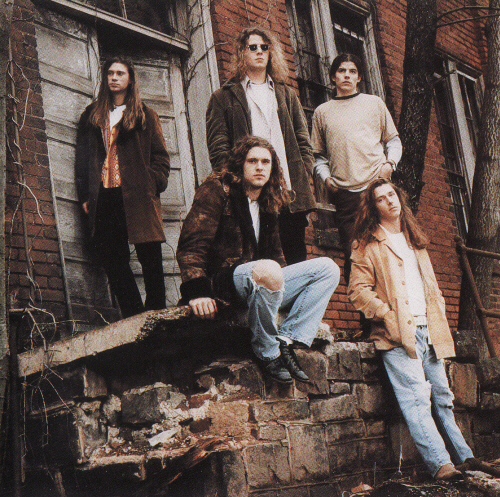
Michele Caplinger: There were a lot of major records at Atlantic all requiring attention at that time, including Tori Amos and The Lemonheads. It was smart to have some back up, people pushing on your behalf.
Eldredge ATL: I was covering my first shows in Atlanta and writing my first reviews at the time. Am I overly romanticizing the era when I say that bands today probably have less fun and face many more challenges? As music professionals, what advice do you have for today’s musicians?
Ed Roland: Bands have YouTube now and it’s easier and cheaper to get heard on that platform. Back in day, you had to get out and play live. It’s something that I still love to do.
Michele Caplinger: I also romanticize those years. There was something special and unique about that time that isn’t available to bands now. I don’t think you can replace live performance. When I talk to young bands now I ask, “How often do you perform?” and so often I hear, “Oh, we haven’t yet.” It’s a completely different model now.
Eldredge ATL: What’s the template for success for musicians in 2015?
Michele Caplinger: I encourage them to network and get out there and play and meet as many people in the industry as possible. The seasoned performers need the up and coming young people just as much as the young artists need them. It’s mutually beneficial to get yourself out there. Don’t assume those people are unapproachable. Find away to get in front of them. Some of the most talented musicians are still in their basement. Get out, get heard.
Ed Roland: Make sure you are protected in this business. Be aware that the phrase is music business. As excited as you are about meeting people, make sure you have a team around you that will protect you. It’s your dream and it makes you vulnerable. Care about what you sign. You’ll thank yourself later.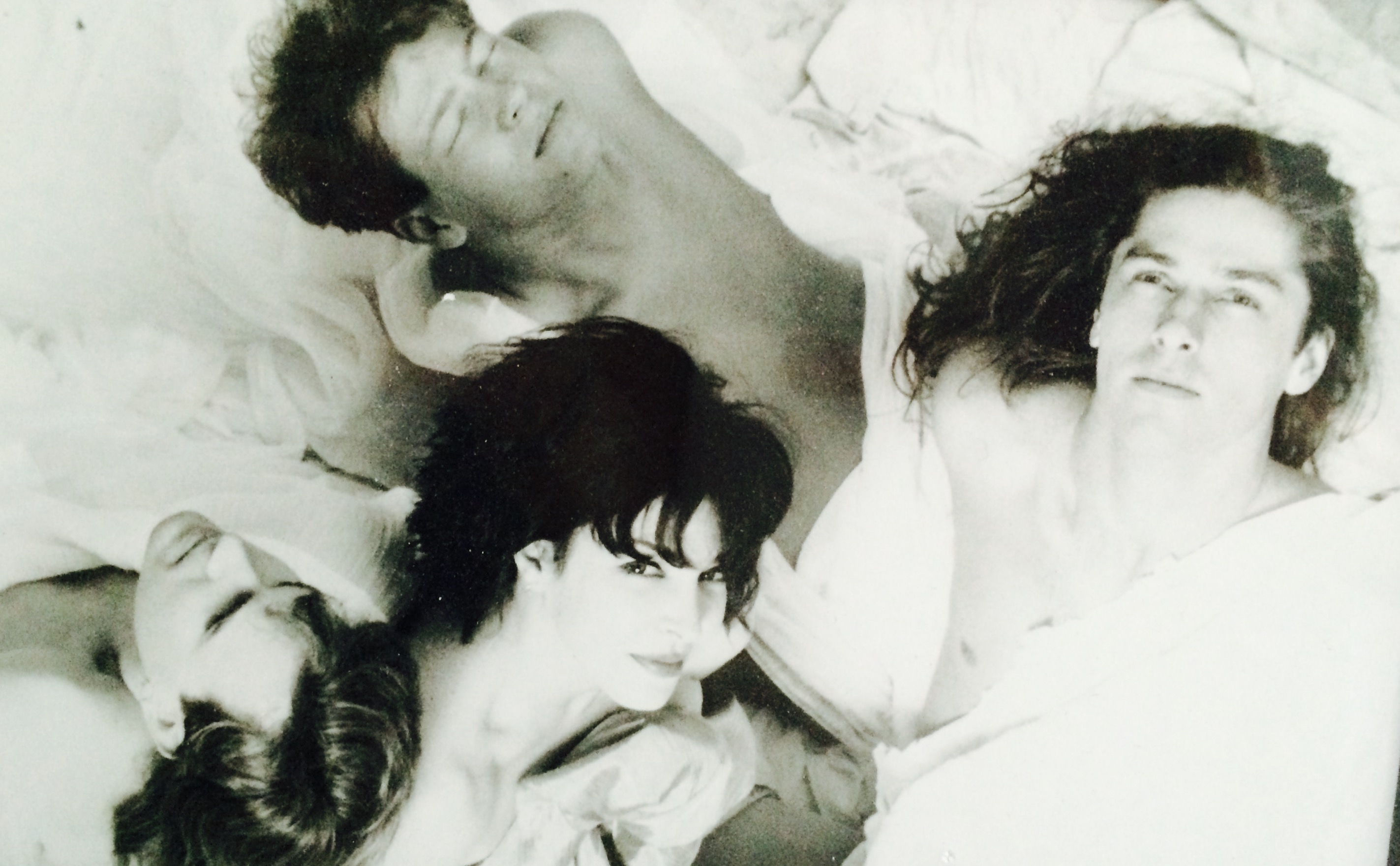
Eldredge ATL: Two and a half decades later, what’s kept your friendship intact?
Ed Roland: I’ve always thought of her as my sister.
Michele Caplinger: Ed is family. I have such great respect for him as a human being and as a talent. I adore his wife Michaeline and Ed and my husband Blair as like five-year-olds when you get them in the same room! We’re just family.
Marching Two-Step main photo: L to R – Skip Goodwin, Shane Evans, Michele Rhea (Caplinger) and Ed Roland

Richard L. Eldredge is the founder and editor in chief of Eldredge ATL. As a reporter for the Atlanta Journal-Constitution and Atlanta magazine, he has covered Atlanta since 1990.

